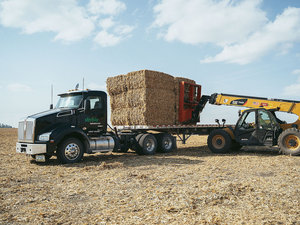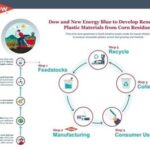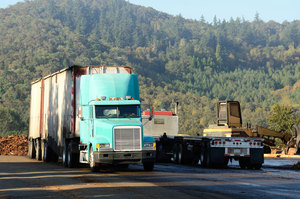Verbio kicks of 2023 corn stover harvest
Energy Disrupter
By Verbio North America Holdings Corp. | September 22, 2023
ADVERTISEMENT
Verbio has launched its second corn stover harvest. Corn stover will be used as feedstock for production of renewable natural gas (RNG) at its large-scale plant in Nevada, Iowa. The company sources the feedstock from local growers within a 60-mile-radius of its production facilities.
“We are excited about this new harvest season,” says Greg Faith, president of the Verbio Nevada Biorefinery. “Unlocking the value of organic residue materials by creating RNG is a rapidly growing market in the United States. Successfully cooperating with local growers in the region is the foundation of our business, especially here in Iowa. The potential benefits of corn stover as a renewable fuel source are massive. We are planning to harvest approximately 135,000 bales of stover required to ensure full production over the next 12 months.”
Top-notch service for local agriculture businesses
As a fast-growing global company and one of Europe`s leading manufacturers of biofuels, bioenergy and renewable components for chemical industries, Verbio has developed, installed and scaled up its unique technology to produce sustainable fuel from agricultural residues. At its Nevada plant, Verbio has been producing renewable natural gas from corn stover on an industrial scale since December 2021. It is injected directly into the natural gas distribution and transmission grid to be utilized as a climate friendly green fuel.
With a top-notch fleet of equipment, consisting of 25 trucks and 18 balers, choppers and accumulators, the agronomy team at Verbio is ready to serve local agriculture businesses. Once a farmer has completed harvest in a field that is under contract, the Verbio agronomy team chops, bales, and hauls corn stover off the growers` field. The bales are then stored on site at the Nevada plant and used in the RNG production process.
“We aim to be a strong partner with local growers in the neighboring counties. Providing them with an excellent service is a priority for us. This is why we have increased our agronomy team and further professionalized our services. Connecting with our region`s growers and explaining our mission while securing feedstock for RNG production is vital to our plant`s ambitions. It not only adds significant value to the rural economy, but beyond that, helps improve the environment, public health and the nation`s energy supply security,” states Faith.
Smart residue management for increased crop yields and climate protection
Corn stover are the stalks, leaves, husks, sheaths, tassels and more that are considered agricultural residue materials. By harvesting these organic residue materials, growers not only generate an additional revenue source for their business. They can actively support sustainable agriculture practices protecting the environment. Research conducted in cooperation with experts at ISU, has confirmed that our technology prevents the release of additional greenhouse gases from agricultural production that would have resulted from the stover being left to decompose in the fields. By consistently harvesting ag residues in continuous corn cropping systems, growers can increase grain yield of the following crop while reducing nitrogen fertilizer input and environmental nitrogen losses, the research demonstrates.
Commissioning of ethanol production in progress
Besides looking forward to a successful corn stover harvest for RNG production, Verbio is working on the commissioning of ethanol production in addition to the biomethane produced at the Nevada plant. Operations are expected to begin in the 4th quarter of 2023. “The integration of RNG and ethanol production, unique to Verbio, incorporates advanced operational technology to build on the company’s successful experiences in Europe. The Verbio Nevada biorefinery will be the largest plant in the country to utilize this advanced technology. It will open up even more opportunities to the Iowa farmer, as well as provide a renewable alternative solution to fossil fuels.”
















